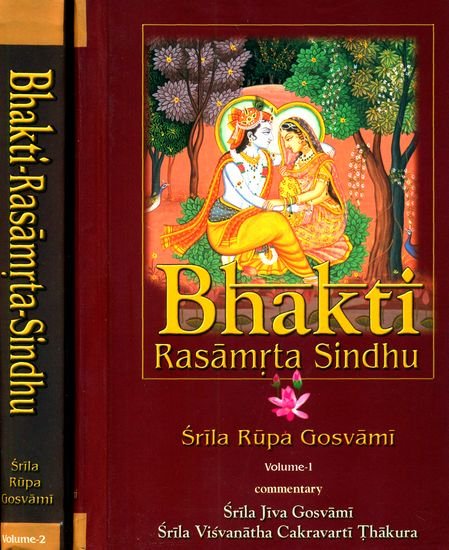Bhakti-rasamrta-sindhu
by Śrīla Rūpa Gosvāmī | 180,912 words
The English translation of the Sri Bhakti-rasamrta-sindhu verse 1.2.39; a medieval era Sanskrit book, written by Rupa Goswami (fl. 15th century) which represents a devotional (bhakti) masterpiece. In this work Goswami describes the nature and different forms of pure love (rasa) as well as various other topics on Vaishnavism and devotion.
Verse 1.2.39
Sanskrit text, Unicode transliteration and English translation:
श्री-दशमे नागपत्नी-स्तुतौ (१०.१६.३७) —
न नाक-पृष्ठं न च सार्व-भौमं
न पारमेष्ठ्यं न रसाधिपत्यम् ।
न योग-सिद्धीर् अपुनर्-भवं वा
वाञ्छन्ति यत्-पाद-रजः-प्रपन्नाः ॥१.२.३९॥śrī-daśame nāgapatnī-stutau (10.16.37) —
na nāka-pṛṣṭhaṃ na ca sārva-bhaumaṃ
na pārameṣṭhyaṃ na rasādhipatyam |
na yoga-siddhīr apunar-bhavaṃ vā
vāñchanti yat-pāda-rajaḥ-prapannāḥ ||1.2.39||
English translation
In the Tenth Canto of Śrīmad-Bhāgavatam [10.16.37] the wives of Kāliya speak:
“Those who have attained the dust of Your lotus feet never hanker for the kingship of heaven, limitless sovereignty, the position of Brahmā or rulership over the earth. They are not interested even in the perfections of yoga or in liberation itself.”
